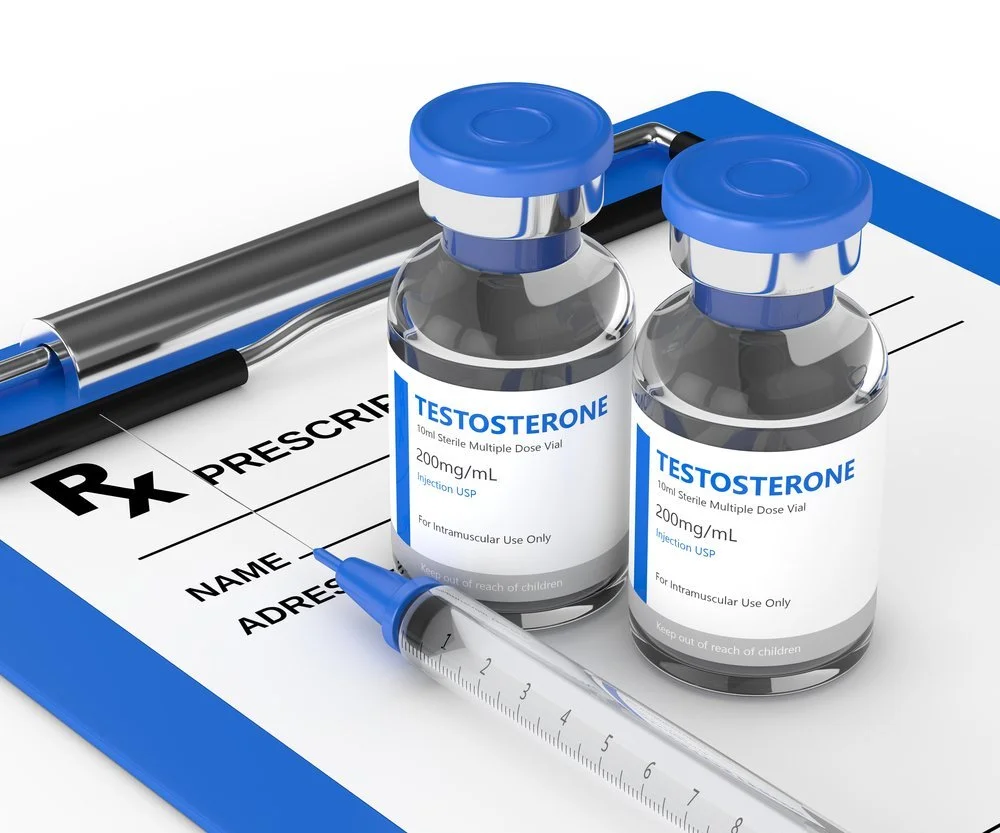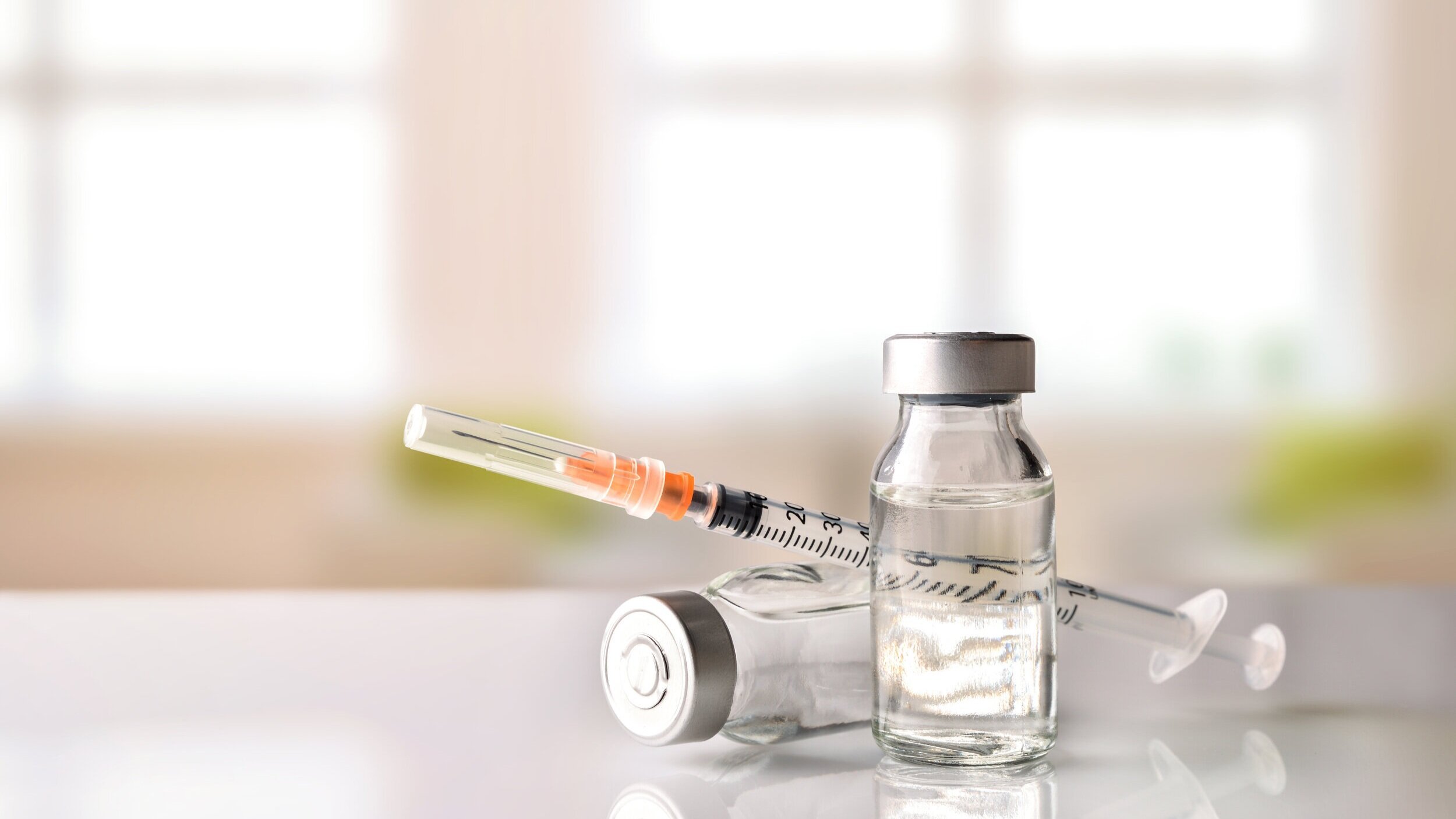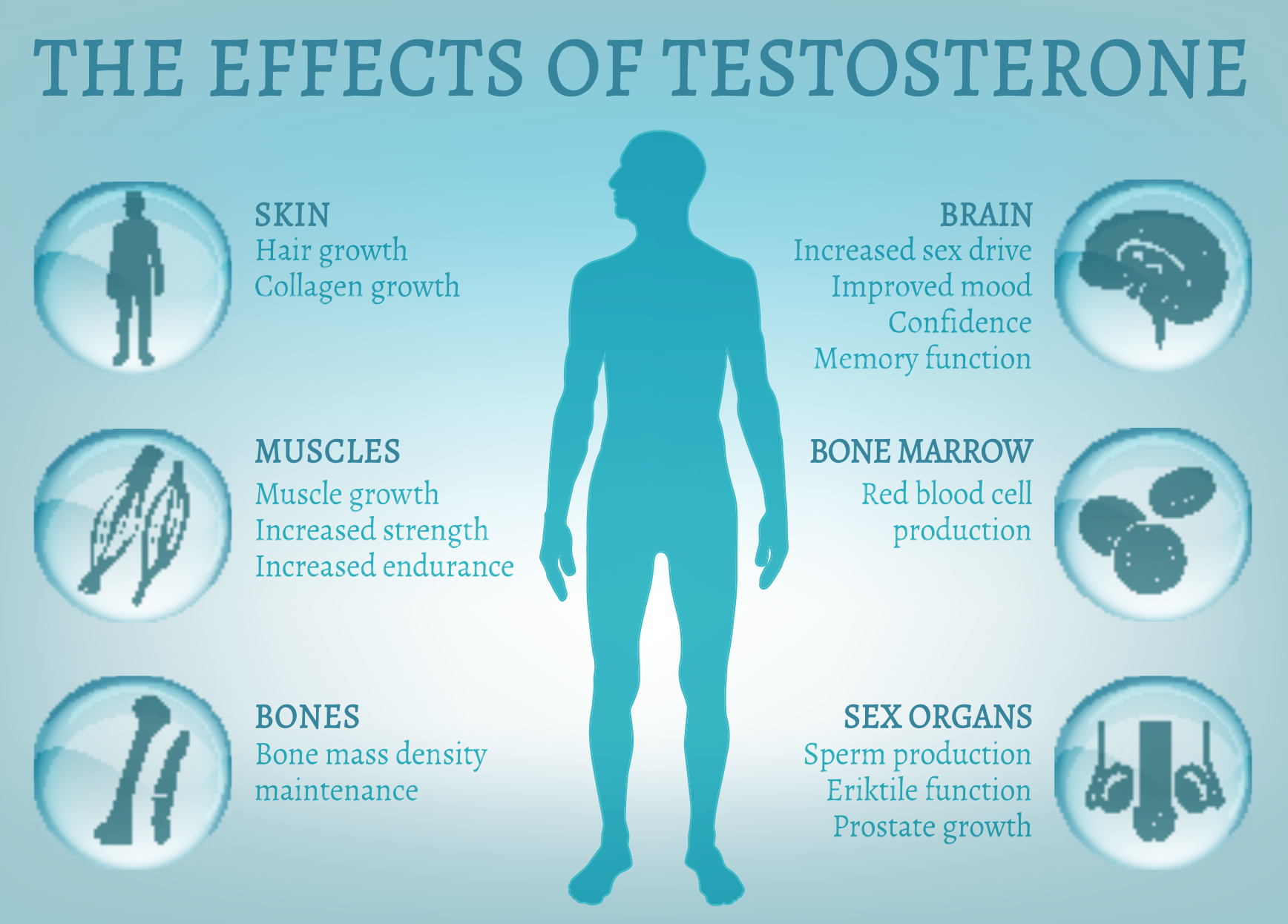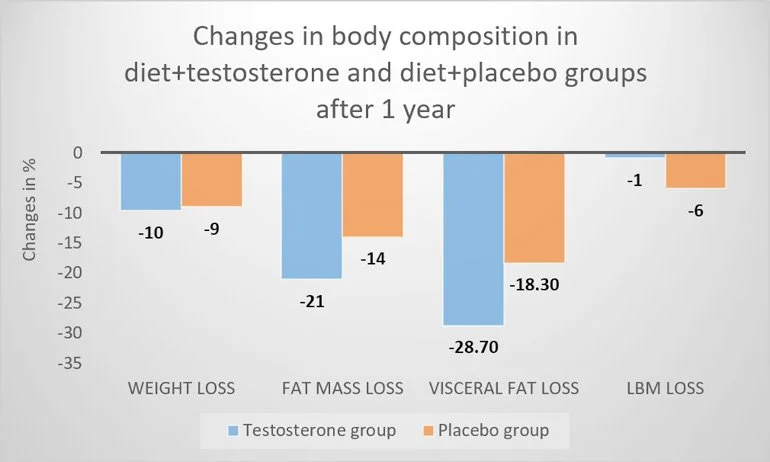Is Testosterone Replacement Therapy Suitable for You? [or not suitable]
Your doctor will evaluate your symptoms and perform tests to determine if you have low testosterone levels that require treatment.
When considering testosterone replacement therapy, it is crucial to consult with a healthcare professional who can assess your symptoms and conduct tests to measure your testosterone levels accurately. Low testosterone, also known as hypogonadism, can lead to various symptoms such as fatigue, reduced libido, muscle loss, and mood changes. However, these symptoms alone may not be sufficient to diagnose low testosterone. Your doctor will take into account several factors before recommending this therapy.
Factors such as overall health condition and personal preferences will also be considered when deciding if this therapy is suitable for you.
To determine the suitability of testosterone replacement therapy, your doctor will consider various aspects of your overall health. They may evaluate any existing medical conditions you have and how they could potentially interact with the treatment. For instance, individuals with prostate or breast cancer may not be suitable candidates for this therapy due to its potential impact on hormone-sensitive tumors. Certain medications might interfere with the effectiveness or safety of testosterone replacement therapy. It is essential to discuss any existing medical conditions or medications that may affect the suitability of this treatment option.
Moreover, personal preferences play a significant role in determining whether testosterone replacement therapy is suitable for you. Some individuals may prioritize improving their energy levels and sexual function while others might have concerns about potential side effects or long-term implications. Openly discussing your goals and concerns with your healthcare provider will help them understand your needs better and guide their recommendation accordingly.
A thorough assessment by a healthcare professional will help determine if this treatment option is appropriate for you.
Before starting testosterone replacement therapy, a comprehensive evaluation by a healthcare professional is necessary. This assessment involves reviewing your medical history in detail along with conducting physical examinations and laboratory tests to confirm low testosterone levels. These tests typically involve measuring total testosterone levels in blood samples taken at different times to account for natural fluctuations. Other hormone levels, such as luteinizing hormone (LH) and follicle-stimulating hormone (FSH), might be checked to identify the underlying cause of low testosterone.
Based on the results of these assessments, your doctor will determine if testosterone replacement therapy is appropriate for you. If it is deemed suitable, they will discuss the various treatment options available and help you make an informed decision regarding the most suitable approach.
Assessing the Safety of Testosterone Therapy
Before starting testosterone therapy, it's important to undergo a comprehensive evaluation including a physical examination and blood tests. This initial assessment allows the medical provider to determine if testosterone therapy is suitable for the individual and identify any underlying health conditions that may affect treatment. By thoroughly evaluating the patient's medical history and conducting a physical examination, potential risks can be identified, ensuring that testosterone therapy is appropriate for the individual.
Monitoring of testosterone levels and potential side effects is necessary throughout the treatment. Regular blood tests are essential to assess hormone levels and ensure they remain within a healthy range. This monitoring helps prevent complications associated with excessively high or low testosterone levels, such as cardiovascular problems or mood changes. Tracking side effects allows for early intervention if any adverse reactions occur.
Regular follow-up appointments with a healthcare professional are crucial to ensure safety and adjust the therapy if needed. These appointments provide an opportunity to discuss any concerns or questions regarding the treatment. The medical provider can evaluate progress, monitor hormone levels, and address any emerging issues promptly. Open communication between patients and their healthcare providers during these follow-ups is vital in maintaining both safety and effectiveness of testosterone therapy.
Adhering to prescribed dosage and guidelines can help minimize risks associated with testosterone therapy. It is essential for individuals undergoing this treatment to strictly follow their medical provider's instructions regarding dosage administration and frequency. Deviating from prescribed guidelines can lead to imbalances in hormone levels or other unwanted side effects. By adhering closely to recommended protocols, patients can maximize benefits while minimizing potential risks.
Exploring Potential Links to Diabetes and Overweight
Some studies suggest a possible association between low testosterone levels, diabetes, and overweight or obesity. Testosterone therapy may have positive effects on insulin sensitivity in men with diabetes or prediabetes. Weight loss resulting from lifestyle changes can also contribute to increased testosterone levels. Further research is needed to fully understand the relationship between testosterone, diabetes, and weight management.
Low testosterone levels have been linked to various health conditions, including diabetes and overweight or obesity. Several studies have explored this connection, shedding light on potential insights into the role of testosterone in these conditions. Insulin resistance is a hallmark characteristic of diabetes and prediabetes, where the body's cells become less responsive to insulin. Interestingly, some research suggests that testosterone therapy could improve insulin sensitivity in men with these conditions.
Insulin sensitivity refers to how effectively cells respond to insulin's signals for glucose uptake. By enhancing insulin sensitivity through testosterone therapy, individuals with diabetes or prediabetes may experience improved glycemic control and better overall metabolic function. This could potentially reduce the risk of complications associated with uncontrolled blood sugar levels.
However, it's important to note that while some studies show promising results regarding the impact of testosterone therapy on insulin sensitivity in individuals with diabetes or prediabetes, more research is required before definitive conclusions can be drawn.
Weight management also plays a crucial role in the interplay between testosterone levels and health outcomes such as diabetes. Obesity is often associated with lower testosterone levels due to increased conversion of testosterone into estrogen within fat cells. Conversely, weight loss resulting from lifestyle changes can lead to elevated testosterone levels.
A recent study found that losing excess weight through healthy habits like regular exercise and balanced nutrition positively influenced both total and free testosterone levels in overweight men. This suggests that adopting a healthier lifestyle not only aids weight management but also has potential benefits for hormonal balance.
Understanding the complex relationship between hormones like testosterone and various health conditions requires further investigation. While there is growing interest in exploring the potential links between testosterone, diabetes, and weight management, more comprehensive studies are needed to provide a clearer picture.
Effects on Body Composition, Prostate, and Erythropoiesis
Testosterone therapy has been shown to have significant effects on body composition, prostate health, and erythropoiesis. It can bring about positive changes in muscle mass and fat distribution while also impacting red blood cell production. However, these effects must be closely monitored by healthcare professionals to ensure the best outcomes for patients.
Changes in Body Composition
One of the primary benefits of testosterone therapy is its ability to improve body composition in men with low testosterone levels. Studies have demonstrated that this treatment can lead to increased lean body mass and decreased fat mass. By promoting muscle growth and reducing fat accumulation, testosterone therapy helps individuals achieve a more desirable physique. This effect is particularly beneficial for those struggling with age-related muscle loss or obesity.
Prostate Health Considerations
While testosterone therapy offers several advantages, it is crucial to monitor prostate health during treatment due to potential risks. The prostate gland plays a vital role in male reproductive function, but it can be susceptible to enlargement or cancer development. Testosterone may stimulate the growth of existing prostate cancer cells or cause benign prostatic hyperplasia (BPH), leading to urinary symptoms such as frequent urination or difficulty starting/stopping urine flow.
Healthcare professionals must conduct regular screenings and evaluations before initiating testosterone therapy and periodically thereafter. Monitoring prostate-specific antigen (PSA) levels helps identify any abnormalities that may require further investigation. By carefully assessing prostate health throughout treatment, healthcare providers can mitigate potential risks associated with testosterone therapy.
Impact on Erythropoiesis
Erythropoiesis refers to the process of red blood cell production within the body. Testosterone therapy has been found to increase red blood cell count in some individuals. While this effect can be advantageous for those with anemia or low red blood cell levels, it requires close monitoring as excessively high red blood cell counts can pose health risks.
Elevated red blood cell counts can lead to a condition known as polycythemia, which thickens the blood and impairs circulation. This may result in symptoms such as fatigue, dizziness, and increased risk of blood clots. Regular monitoring of hematocrit levels is essential to ensure that red blood cell production remains within a safe range during testosterone therapy.
Key Takeaways from Testosterone Therapy
In conclusion, testosterone therapy can be a viable option for individuals experiencing low testosterone levels. Understanding the normal range of testosterone and the risks and benefits associated with therapy is crucial in determining if it is suitable for you. It is important to assess the safety of testosterone therapy and consider potential links to diabetes and overweight.
Testosterone therapy can have various effects on body composition, the prostate, and erythropoiesis. However, it is essential to consult with a healthcare professional to evaluate your specific situation before considering this treatment.
It is recommended to gather all relevant information and consider its potential impact on your overall well-being. Taking into account factors like age, health condition, lifestyle choices, and personal preferences will help you make an informed choice.
To ensure you are well-informed about testosterone therapy:
Consult with a healthcare professional who specializes in hormone replacement therapies.
Discuss your concerns, goals, and medical history openly.
Consider the potential benefits as well as the risks associated with this treatment.
Regularly monitor your hormone levels during therapy to ensure optimal results.
Maintain a healthy lifestyle by exercising regularly, eating a balanced diet, managing stress levels, and getting enough sleep.
By following these guidelines and seeking professional advice when needed, you can make an informed decision regarding testosterone therapy that aligns with your individual needs.
FAQs
Is testosterone therapy suitable for women?
Testosterone therapy is primarily used in men; however, in certain cases where women have low levels of testosterone due to specific medical conditions or surgical interventions (such as removal of ovaries), it may be considered under close medical supervision.
Can I get testosterone replacement without a prescription?
No, testosterone replacement therapy requires a prescription from a qualified healthcare professional. Self-administering or obtaining hormones without proper medical supervision can lead to serious health risks.
How long does it take to see the effects of testosterone therapy?
The effects of testosterone therapy can vary from person to person. Some individuals may experience improvements in symptoms within a few weeks, while others may require several months. Regular monitoring and follow-up with your healthcare provider are essential to assess progress.
Are there any natural alternatives to testosterone therapy?
While lifestyle changes such as regular exercise, a healthy diet, stress management, and adequate sleep can support hormone balance, they may not be sufficient for individuals with clinically low testosterone levels. In such cases, testosterone therapy under medical supervision may be necessary.
Can testosterone therapy increase the risk of prostate cancer?
There is ongoing debate regarding the potential link between testosterone therapy and prostate cancer. It is crucial to discuss your individual risk factors with a healthcare professional before considering this treatment option.
These FAQs provide answers to common questions about testosterone therapy; however, it is important to consult with a qualified healthcare professional for personalized advice based on your specific circumstances.
For more information on how to book your consult please call Ascend Wellness in Savannah, Georgia. Here we will personalize your testosterone therapy treatments. A professional health care provider will assist you in your path to re-establishing your youthfullness.









